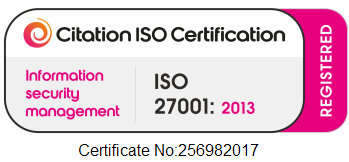Unfortunately, it’s when we see ourselves in more vulnerable circumstances that we fall victim to fraudsters and with the recruitment market filled with even more uncertainty, these fraudsters are certainly thriving.
In 2017, SAFERjobs had reported seeing a 300% increase in fake jobs in the last two years alone.
Now, in 2020, these figures continue to rise as SAFERJobs sees another 70% increase between March and October, the time at which the first set of COVID-19 restrictions were introduced in the UK.
From the beginning of this period, the charity received 750 reports of fake jobs with around 3,750 job seekers said to have fallen victim.
These fake jobs can be found on some of the most used and loved jobs boards, going undetected for weeks, even months.
This results in many individuals dedicating an abundance of time handing over their personal information in the hopes of a job opportunity that does not exist.
And with some job ads including details of real, legitimate businesses, not only does the job seeker fall victim but so are many businesses in a time that is already seeing a lot of hardship.
Typically, the types of scams they are enticing job seekers into are money laundering scams.
For example, paying fees for non-existent background checks, visas, online training, or insurance, even pushing them to call premium rate phone lines for interviews and in more serious cases, financial and identity fraud.
Trafficking and slavery have also been linked to fake job advertisements.
In fact, Keith Rosser, Chair at SAFERjobs also warned that in October they started seeing more companies being set up on Companies House, complaining that the Governments recruitment policies are outdated and cater for a time when job adverts were only advertised in shop windows.
Speaking on LinkedIn, Keith Rosser, Chair at SAFERjobs said, “It’s utterly depressing to hear from numerous victims a day who all began with great hope and happiness that they finally have found a job during the pandemic, only to be left out of pocket or handing over their personal details (or both).
“Online platforms (like this one) need to do more to protect the public and UK GOV needs to modernise it’s out of date recruitment legislation (think jobs advertised on sandwich boards on the high street rather than online, app-based recruitment).
“If you are a recruiter and don’t already promote SAFERjobs to work seekers then get on board, it’s free and offers people a route to get advice and help at no cost if and when they need it.”
So, what should you look for?
Alarming Requests – Such as being asked for money to do background checks. Candidates should never be asked for money to complete their applications. It’s worth noting the time at which they are communicating with you. Communicating at unsociable hours can suggest a different time zone.
Weird, or Lacking Online Presence – Check their social media pages to see if these look legitimate. Some could be fake or not even exist. Look into the history of the posts and the connections those pages have with industry professionals.
Bad Links – Be wary of clicking on links. Hover over them to see if it looks genuine. If its shortened like (bit.ly) or is long with unrelated keywords and/or redirects you to an unexpected destination which is not secure, it is probably not a safe or authentic site.
Unprofessional Emails – These should not be from personal accounts such as Hotmail and Gmail. Does the name look genuine? For example, Apple.biz is not likely to be the email domain of an Apple inc. employee. Does it have weird hyphens? Does it look like a professional template? Are there any mistakes? Unbranded signatures? Low-quality images and logos?
Job Ad Mistakes – Generally, job ads should be fairly free of inaccuracies, so regular spelling and grammatical errors can be a warning sign also.
If you come across a fake advert or believe to have already fallen victim, contact SAFERjobs who is a trusted non-profit supported government body.
They can help to ensure the advert is removed from jobs boards and can provide you with free help and advice. You can report fake jobs at https://www.safer-jobs.com/.
You can also contact GOV UK, law enforcement and seek advice from Action Fraud.
Want more news? Subscribe to our newsletter below.




Comments are closed